Online Learning Portal
Online Learning Portal

Hybrid Classes
We provide offline, online and recorded lectures in the same amount.

Personalised Mentoring
Every aspirant is unique and the mentoring is customised according to the strengths and weaknesses of the aspirant

Topicwise Mindmaps
In every Lecture. Director Sir will provide conceptual understanding with around 800 Mindmaps.

Quality Content
We provide you the best and Comprehensive content which comes directly or indirectly in UPSC Exam.
IAS Foundation 2024
Optional Classes
Current Affairs
Test Series
Others Links
UPSC Prelims Classes 2024
Prelims
Mains Classes 2024
Mains & Interview
Mains Material
Test Series
Free Study Material

DAILY NEWS ANALYSIS
Revenue Deficit grants for states Background The Post Devolution Revenue Deficit Grant is provided to the States under Article 275 of the Constitution. The grants are being released as per the recommendations of the Fifteenth Finance Commission in monthly instalments to meet the gap in the Revenue Accounts of the States post-devolution. The Commission has recommended these grants to 17 States during 2021-22. The eligibility of States to receive this grant and the quan
COVID-19 and India’s fiscal conundrum By, Ramkishen S. Rajan is Yong Pung How Professor at Lee Kuan Yew School of Public Policy, National University of Singapore, and Sasidaran Gopalan is a Senior Research Fellow at the Nanyang Business School, Nanyang Technological University. Views are personal Introduction As the COVID-19 pandemic continues to ravage economies across the world, policymakers are desperately seeking effective ways to mitigate its economic effects. The immedia
Boost wages to stimulate India’s growth By, Jayan Jose Thomas teaches Economics at the Indian Institute of Technology Delhi. Views are personal Introduction Impoverishment among English workers during the early years of the Industrial Revolution had prompted Leicester framework knitters to frame this resolution in 1817: “… if liberal Wages were given to the Mechanics in general throughout the Country, the Home Consumption of our Manufactures would be immediately more
Everyone wants a good stimulus By, Srivatsa Krishna is an IAS officer. Views are personal Introduction While pleading for less or no government, corporate India wants to always privatise profits and socialise losses. So, when Jet Airways crumbles, or a Yes Bank implodes (for reasons other than business risk), everyone goes running to the government seeking bailouts. Now, it is natural that with a legitimate contraction in economic activity due to the COVID-19 pandemic (and deep unce
Slower growth and a tighter fiscal By, C. Rangarajan is former Chairman, the Prime Minister’s Economic Advisory Council and Former Governor, Reserve Bank of India. D.K. Srivastava is Chief Policy Advisor, EY India and former Director, Madras School of Economics. The views expressed are personal Introduction Various institutions have assessed India’s growth prospects for 2020-21 ranging from 0.8% (Fitch) to 4.0% (Asian Development Bank). The International Monetary Fund (I
Atmanirbhar Bharat Introduction PM announces special economic package; a comprehensive package of Rs 20 lakh crore- package equivalent to 10% of India’s GDP PM gives a call for a self-reliant India; lays down five pillars of Atmanirbhar Bharat. Self-reliant India Talking about the pre and post-COVID worlds, Prime Minister observed that in order to fulfil the dream of making the 21st century India, the way forward is through ensuring that the country becomes self-reliant.
Liquidity lifeline: On Nirmala’s MSME package Introduction The first tranche of announcements made by Finance Minister Nirmala Sitharaman under the Atmanirbhar Bharat Abhiyan on Wednesday is impressive indeed. Focus areas The measures announced will go a long way in lifting the spirits of the two key and troubled sectors of MSMEs and non-banking finance companies. While for the MSMEs it is an existential crisis, for the NBFCs it is one of liquidity. Fiscal package
A plan to revive a broken economy By, Prabhat Patnaik is Professor Emeritus, Centre for Economic Studies and Planning, Jawaharlal Nehru University (JNU), New Delhi. Jayati Ghosh is a professor of economics at JNU. Harsh Mander is a human rights worker, writer and teacher Introduction Despite some announcements of some fiscal packages, vast numbers of working people will remain without their regular incomes. He also announced a package of 20 lakh crore, but this includes already allocate
FORCE (‘Fiscal Options and Response to Covid-19 Epidemic’) A group of 50 IRS officers thought it their duty to help the government in this hour of crisis. They prepared a report titled ‘Fiscal Options and Response to Covid-19 Epidemic’, or FORCE, and submitted it to the government. In order to tide over the financial crisis, the report suggested : 1. Raising the highest slab rate to 40% for income above ?1 crore 2. Re-introducing the wealth tax for those wit
A matter of relief: On the economic stimulus package With the announcement of the final tranche of Atmanirbhar Bharat Abhiyan, the government tries to give a strong supply-side push by boosting the availability of capital on easy terms, keeping income and wage support schemes to the minimum, empowering constituencies ranging from farmers and workers to businesses, and finally, the most important, keep the damage to the fiscal as low as possible. The fiscal impact of the ?20-lakh crore pac
Public debt Article 292 of the Indian Constitution states that the Government of India can borrow amounts specified by the Parliament from time to time. Article 293 of the Indian Constitution mandates that the State Governments in India can borrow only from internal sources. Thus the Government of India incurs both external and internal debt, while State Governments incur only internal debt under Article 293. As per the recommendations of the 12th Finance Commission, access to exter
The problem with the liquidity push By, C.P. Chandrasekhar is former Professor at the Centre for Economic Studies and Planning, Jawaharlal Nehru University, New Delhi Introduction The present government’s much-hyped, post-COVID-19 relief and recovery package has disappointed many. Most estimates place the additional fiscal allocation implicit in the proposals at about a tenth of the size of the package, which the government claims amounts to around 10% of GDP. In its effort
National Institute of Public Finance and Policy (NIPFP) The National Institute of Public Finance and Policy (NIPFP) is a centre for research in public economics and policies. It is India’s premier economic think thank. It is presently headed by Urjit Patel. Founded in 1976, the institute undertakes research, policy advocacy and capacity building in areas related to public economics. One of the major mandates of the institute is to assist the Central, State and Local governm
Getting out of the ‘guns, germs and steel’ crisis By, Praveen Chakravarty is a political economist and a senior office-bearer of the Congress party Context # India faces a “guns, germs and steel” crisis. There are Chinese “guns” on the borders. There are coronavirus “germs” in our bodies. There are “steel” makers and other businesses on the verge of bankruptcy. # Arguably, this is the gravest confluence of military, health a
Do we need a fiscal council? By, The writer is a former Governor of the Reserve Bank of India Context * The government needs to borrow and spend more now in order to support vulnerable households and engineer economic recovery. But that will mean a steep rise in debt which will jeopardise medium-term growth prospects, an issue prominently flagged by all the rating agencies in their recent evaluations. * The government can signal its virtue by establishing some new institutional mech
Digging deeper: On GST compensation Context The Centre has finally managed to pay States the compensation due to them for the previous year under the GST regime. The last instalment of? 13,806 crore for March 2020 was paid out recently, taking the total payments for the year to ? 1,65,302 crore. GST compensation to the states To refresh, States were guaranteed compensation from the Centre for the first five years of the new indirect tax regime introduced in July 2017, for
Rebuild India’s confidence, revive the economy By, former PM Dr.Manmohan Singh Context: The article discusses the economic impact of the COVID-19 pandemic and suggests a few policy measures to address this challenge. The economic impact of the pandemic: India entered the COVID-19 crisis in a precarious position, with slowing growth, rising unemployment and a strained financial system. The epidemic has made it more painful. The COVID-19 pandemic and the subsequent r
How to pay for the stimulus By, Pulapre Balakrishnan is a Professor of Economics, Ashoka University, Sonipat Introduction Greater public spending will increase the fiscal deficit and this expansion has to be financed. Theoretically, it can be financed by higher taxes but it cannot be the case when the economy is in recession. Debt vs. money financing So, what are the options? They are: issuing debt to the public, and borrowing from the Reserve Bank of India (R
Making up for shortfalls in GST collection By, M.R. Madhavan is President of PRS Legislative Research, New Delhi Context Two weeks ago, the Central government announced that it has released the Goods and Services Tax (GST) compensation dues to States for 2019-20. The total compensation was ?1,65,302 crore while the compensation cess fund collected was ?95,444 crore. The shortfall was made up by excess collections in earlier years as well as some of the balance of inter-State GS
Transparent Taxation — Honouring the Honest Context: Prime Minister Narendra Modi has launched a “Transparent Taxation — Honouring the Honest” platform that provides faceless assessment, faceless appeal and a taxpayers’ charter. Reforms: Reduction in corporate tax from 30% to 22% for existing companies and from 25% to 15% for new manufacturing companies. Abolition of the dividend distribution tax. Steps have been taken to bring efficiency and
Cessed out Introduction: Cess is a tax levied for a specific purpose and ought to be used for the same only. The process of cess levying occurs after Parliament has authorised its creation through an enabling legislation that specifies the purpose for which the funds are being raised. The latest audit of the Union Government’s accounts tabled in Parliament has revealed that about 40% of all the cess collections in 2018-19 have been retained in the Consolidated Fund of India (C
India needs a rainbow recovery plan Context: The article emphasizes a renewed approach to growth and development in the post-COVID scenario. In Europe and the U.S., a ‘green new deal’ (GND) proposed by some from the political mainstream puts the climate and employment crises at the centre of economic recovery. ‘Business as usual approach to ‘Rainbow New Deal’ (RND): The article warns that attempting a ‘business as the usual approach could
The future of GST hangs in the balance Introduction The GST compensation issue has been a bone of contention between the centre and state governments threatening to undermine both India’s fiscal federalism and Centre-State relations. News: Many states have accepted the proposal made by the Central Government while many others have rejected it. In this background, the GST compensation issue could be put to vote in the GST Council meeting. Around twenty members of the
India’s Taxation Challenge Context Recently, the Permanent Court of Arbitration at the Hague has finally ruled in favour of the telecom giant Vodafone in an Investment treaty arbitration (ITA) dispute against India. The case was initiated under the India-Netherlands Bilateral Investment Treaty (BIT), which pertains to India’s retrospective demand of Rs 22,100 crore as capital gains and withholding tax imposed on a 2007 deal. The ruling in favour of Vodafone signals a set
Where are the funds collected through cess parked? Context: The Comptroller and Auditor General (CAG) of India, in the latest audit report of government accounts, has observed that the Union government withheld in the Consolidated Fund of India (CFI) more than ? 1.1 lakh crore out of the almost? 2.75 lakh crore collected through various cesses in 2018-19. Issues: Given that cess does not need to be a part of the divisible pool of resources, increasing the share of cess in the
How Covid-19 has affected the finances of state governments? Context The Reserve Bank of India’s study on state governments’ finances, released on Tuesday, indicates that gross fiscal deficits (GFDs) of state governments are set to double in 2020-21. With the Covid-19 pandemic having hit the financial position of states hard, the next few years are going to be challenging. Where are GFDs of states headed? In 2020-21, about half the states have budgeted the GFD-
What did the 2020 Economics Nobel winners discover about auction theory? Context: American economists Paul R. Milgrom and Robert B. Wilson have been announced as the winners of the 2020 economics Nobel Prize/Sveriges Riksbank Prize. Auction theory: All economies have to figure out the allocation of the limited supply of resources to satisfy unlimited human needs. Auctions are important because they are the most widely used and also the most efficient mechanism to allocate
Belated, but bold Introduction The government’s spending plans for 2021-22 hinge on better tax collections, and an ambitious plan to raise non-tax revenue. Strategic Disinvestment Policy Finance Minister has announced large-scale monetisation of government sector assets, including vast tracts of land, and is banking on disinvestment receipts of ?1.75-lakh crore. This includes likely inflows from the strategic sale of entities such as Air India and BPCL, carried forw
It’s goodbye to fiscal orthodoxy Introduction Enough of fiscal orthodoxy. Spend like there is no tomorrow. That is what the Narendra Modi government’s Budget for 2021-22 seems to signal with its fiscal deficit at 9.5% of GDP for FY21 and 6.8% in FY22. Elements counter to market orthodoxy adopted by the government The change in fiscal stance is part of a selective departure from market orthodoxy (Laissez-faire economy) that has marked the government’s economi
Global minimum tax rate- Issues and advantages Introduction United States Secretary's proposal for global coordination of corporate taxation has huge implications. She has proposed a global minimum tax rate. View of World Bank chief on Global minimum tax rate David R. Malpass, President of the World Bank, representing the interest of global capital, has voiced his opposition. He was shooting from the shoulders of the poor countries when he said the proposal “
Financial Stability and Development Council Image Source - India Education Dairy Recently, the Financial Stability and Development Council's 26th meeting was presided over by the Union Minister of Finance and Corporate Affairs (FSDC). What are the main points of discussion? The council placed a strong emphasis on issues such as improving the effectiveness of the current financial and credit information systems, early warning indicators for the economy and how prepared we a
What is the need for fiscal prudence? Stable fiscal policy- It helps to maintain fiscal sustainability and macroeconomic stability as well as promotes economic growth and social welfare. Safety net- It can help avoid fiscal crises, reduce public debt and improve the quality of public spending. Effective resource mobilization- The government should not spend more than it earns, and should use its resources efficiently and effectively to promote the economic and social well-being of

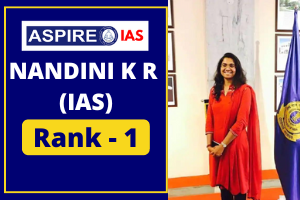
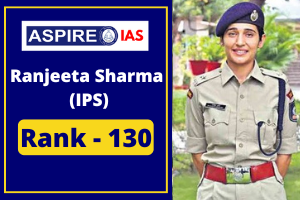
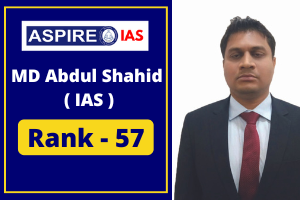
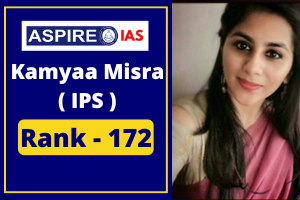

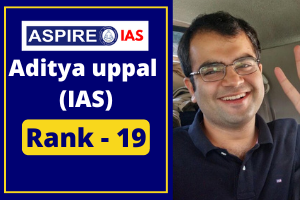
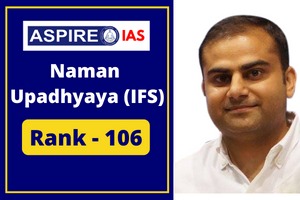
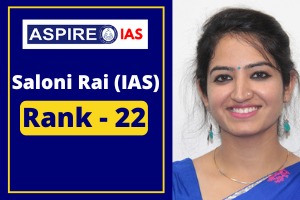










Our Popular Courses
Module wise Prelims Batches
Mains Batches
Test Series